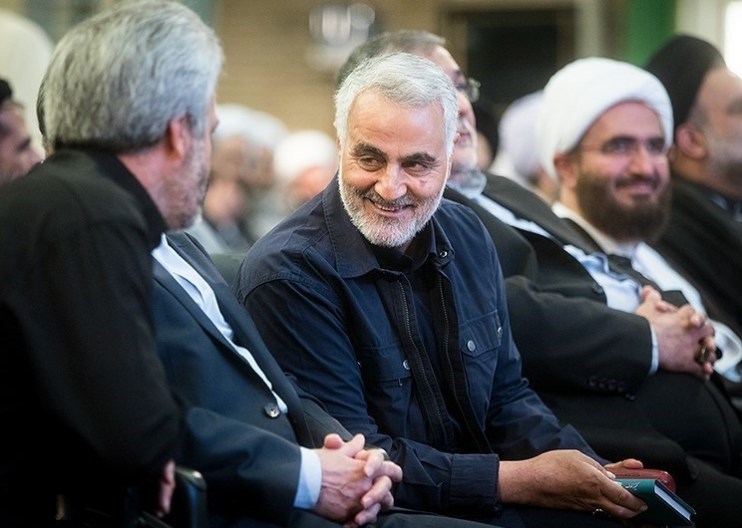European stocks falter after US kills top Iranian general in Baghdad

European markets faltered this morning amid rising tensions after the US confirmed that it had killed one of Iran’s top military officials in an air strike.
In the UK, the FTSE 100 opened 0.5 per cent down, with the biggest fallers being the travel groups and airliners EasyJet, IAG and TUI Group.
Read more: Donald Trump: I did not offer to lift Iran sanctions
Further losses were offset by a bounce in the oil price, which saw oil majors BP and Shell rise 1.3 to 1.4 per cent.
The Stoxx Europe 600 Index retreated 0.6 per cent, led by mining shares.
The instant rise in tensions which saw markets suffer around the world. In Asia, the Hang Seng fell by 0.3 per cent, whilst the Nikkei dropped by three-quarters of a per cent.
Conor Campbell, financial analyst at Spreadex, said that the Dow Jones, looked set to drop 0.9 per cent when the bell rings on Wall Street, though that figure could very easily change.
Qassem Soleimani, the head of Iran’s elite Quds force and considered by many to be the leading architect of the country’s regional policy, was killed at Baghdad airport, the US Pentagon said.
The attack, which was authorised by US President Donald Trump, also killed militia leader Abu Mahdi al-Muhandis.
Iran’s Supreme Leader Ayatollah Ali Khamenei vowed harsh revenge.
Oil prices shot up on the news, with the Brent crude price rising nearly four per cent.
Helal Miah, investment research analyst at the Share Centre, said: “Oil importing regions such as Europe and Japan with stuttering growth could be tipped over the edge by higher oil prices.”
Iran’s long-running proxy conflict with the US came to a head this week after the US embassy in Baghdad came under attack by pro-Iranian militia.
The US holds Iran responsible for September’s attacks on Saudi Aramco’s processing facilities at Abiqaiq, which halved the company’s oil production capacity.
“At the direction of the president, the U.S. military has taken decisive defensive action to protect U.S. personnel abroad by killing Qassem Soleimani,” the Pentagon said in a statement.
“This strike was aimed at deterring future Iranian attack plans,” it added.
In a statement carried by national television, Iran’s Supreme Leader called for three days of national mourning, saying: “All enemies should know that the jihad of resistance will continue with a doubled motivation, and a definite victory awaits the fighters in the holy war.”
Analysts say Iran is likely to respond forcefully to the targeting of Soleimani, who has become a legend in Iran for his role in fighting in Syria and Iraq.
He became head of the Revolutionary Guard’s Quds force, which performs operations beyond Iran’s borders, in 1998.
In recent years the fighting force has helped prop up the uncertain regime of Bashar al-Assad during the Syrian civil war and assisted Iraq against Islamic State group militants.
Read more: US blames Iran for drone strikes on Saudi oil facilities
He survived several assassination attempts against him by Western, Israeli and Arab agencies over the past two decades.
Iran’s ambassador to Iraq told state television that Soleimani’s body would be sent to Iran.